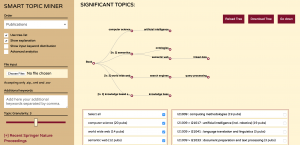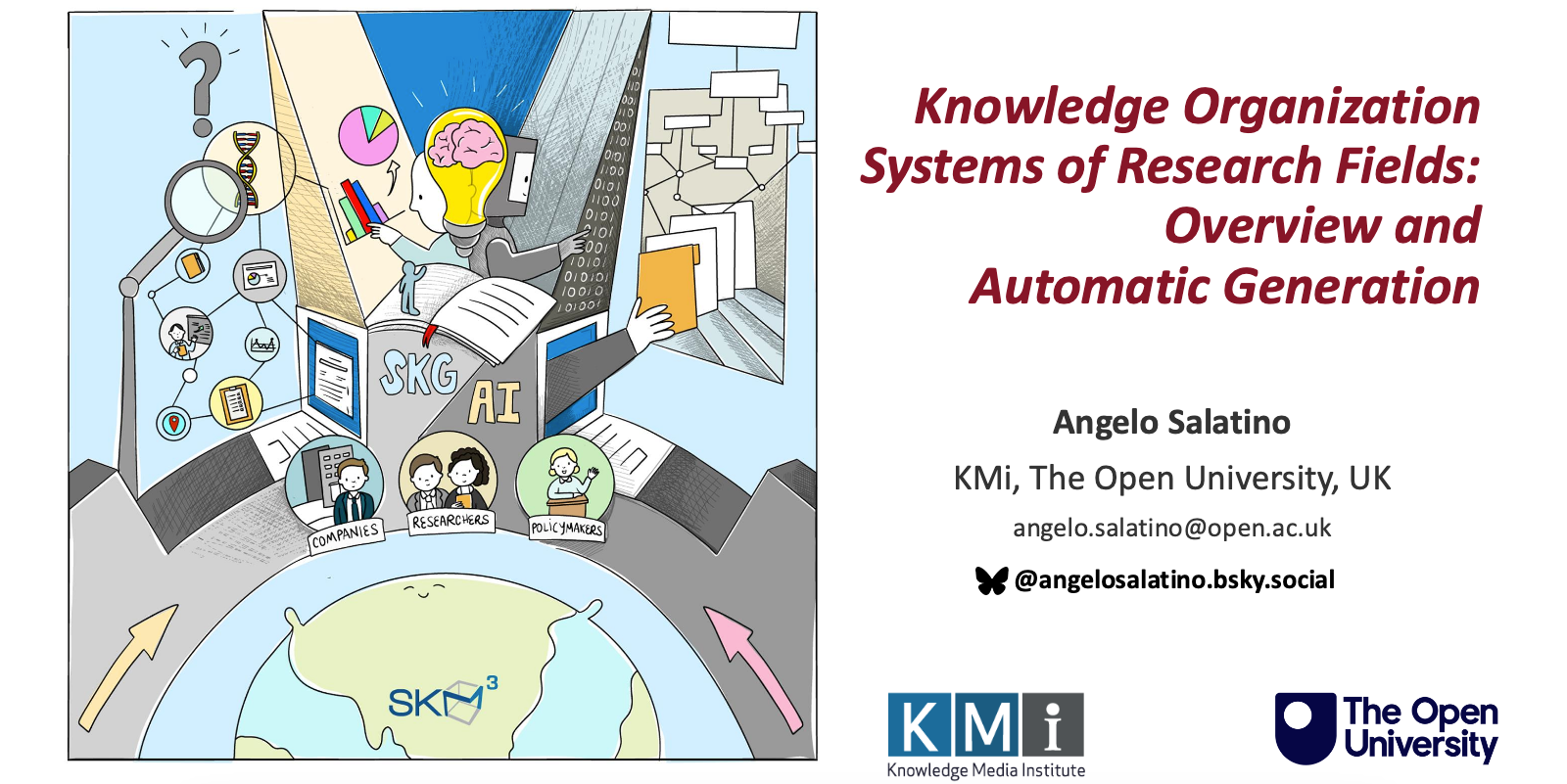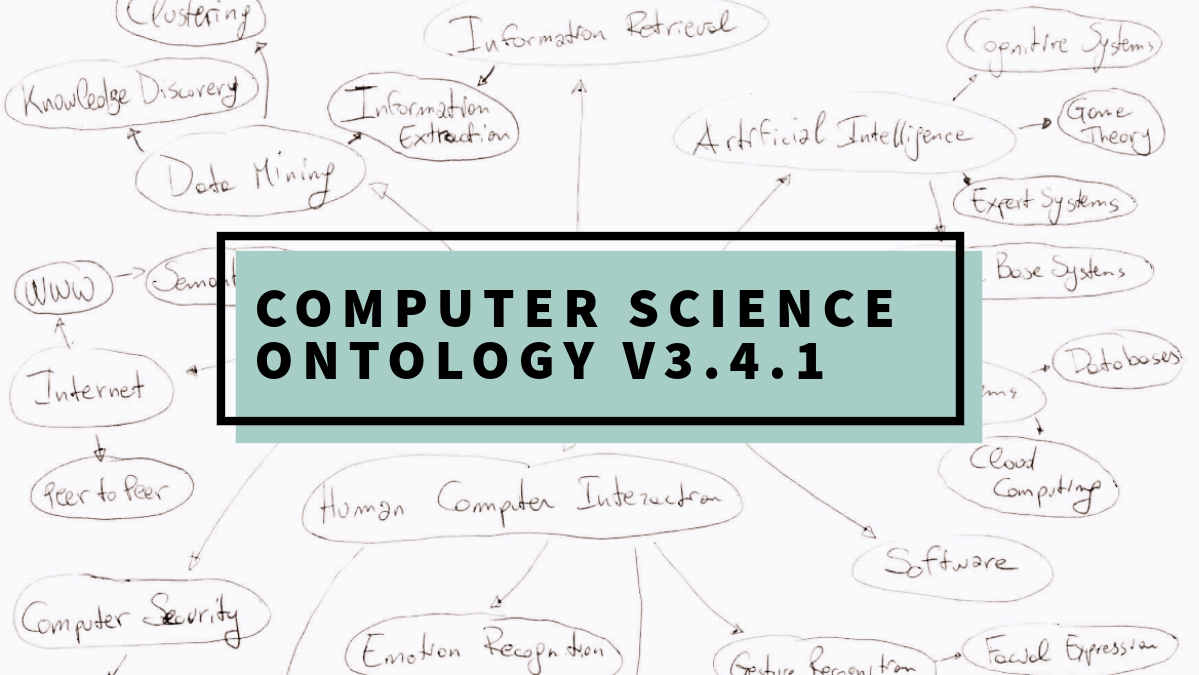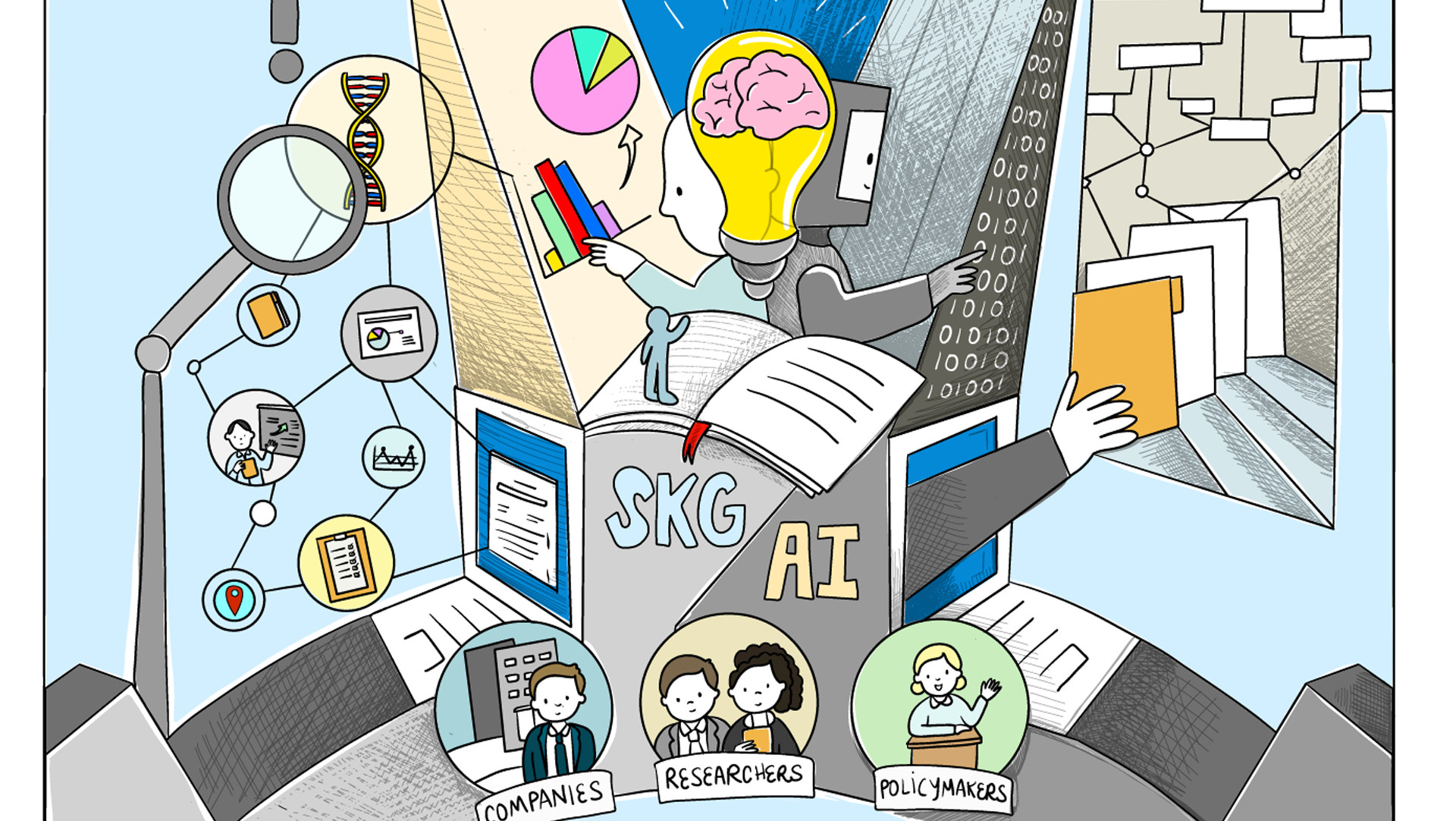Smart Topic Miner (STM) is a web application which uses Semantic Web technologies to classify scholarly publications on the basis of Computer Science Ontology (CSO), a very large automatically generated ontology of research areas.

STM was developed to support the Springer Nature Computer Science editorial team in classifying proceedings in the LNCS family. It analyses in real time a set of publications provided by an editor and produces a structured set of research topics and a number of Springer Nature Classification tags, which best characterise the proceedings book. Indeed, if you regularly publish in the main Computer Science conferences, your work was probably already classified and indexed by using STM.
Traditionally, when classifying proceedings, editors chose a list of related terms and categories according to their own experience, a visual exploration of titles and abstracts, and, optionally, a list of keywords given by the curators or derived by calls for papers. However, this is a complex and time-consuming process and may miss the emergence of a new topic or assume that some topics are still popular when this is no longer the case.
STM analyses a set of papers and returns:
- A taxonomy (or optionally a plain list) of the most significant topics annotated with the number of relevant papers/chapters, structured according to an automatically generated ontology of research areas;
- A taxonomy of Springer Nature Classification tags;
- A number of analytics to allow the editors to further analyse the content of a proceedings volume, including the list of terms and topics associated to each paper;
- Optionally, an explanation for each topic, in term of the keyword distributions that triggered the topic recognition.
Differently from other applications which characterise a text with topics, STM produce a full taxonomy of the relevant research areas rather than a flat list of keywords or categories. This helps editors and users to understand the context of each topic and its relationships with other research areas.
You can try a public demo of STM at http://rexplore.kmi.open.ac.uk/STM_demo/
Relevant papers:
- Smart Topic Miner: Osborne, F., Salatino, A., Birukou, A. and Motta, E. (2016) Automatic Classification of Springer Nature Proceedings with Smart Topic Miner. International Semantic Web Conference 2016, Kobe, Japan. – slides
- Klink-2: Osborne, F. and Motta, E. (2015) Klink-2: Integrating Multiple Web Sources to Generate Semantic Topic Networks, International Semantic Web Conference 2015, Bethlehem, Pennsylvania, USA




